Trail Talk Turns 1🎉
One year ago, released the first ever episode of Trail Talk. I spoke with Ranger Cheryl Spencer at Katmai National Park in Alaska about Fat Bear Week. The audio quality was rough, but not rough enough to hide how nervous I was.
I’ve grown a lot in the past year both in terms of my abilities as a presenter, and the show’s production value. But the constant throughout has always been fun conversations with incredible members of our outdoor community, who are each doing really cool things. I’ve talked to a storm chaser, map maker, meteorologist, world class climbers and skiers, ultra-runners… the list goes on. I’m proud of all our guests, the great insight they’ve shared, and their contributions to the outdoor community.
I hope to continue bringing you more of these conversations in our second year together.
14 days. 17 hours. 33 minutes.
This summer, Dan Hobbs broke an unusual and difficult record that had stood for more than two decades: the fastest self-supported summit of every Colorado 14er.
The “self-supported” part of the record is important, because it means Dan crossed the finish line by himself. In addition to climbing, he had to drive between every peak, handle his own food, and somehow shoehorn in time for sleep.
“For my Mountaineering Experience, a lot has been Trial by Fire. I don’t Recommend that Approach to Anyone.”
Dan’s mountaineering journey started in his mid 20’s, during a trip to Colorado. But he didn’t fully take the plunge until 2013. He struggled with crippling depression following his divorce. Dan says some days he would lay in bed for 20 hours.
He needed something to climb out of that hole, and wound up feeling inspired to climb.
“I woke up one day in my apartment in downtown Minneapolis and just blurted out — ‘I’m gonna hike all the fourteeners. This summer,’” Dan said. “I needed something — needed to feel alive, I needed to feel accomplishment. When I started I had no idea how long it was gonna take. I just put my max effort in every day.”
Dan bought a truck, printed out some route maps from 14ers.com, and hit the trail with no real plan. A little less than one month later, he descended from the mountains with a newfound outlook, and experience.
Interview Notes
0:30 — Trail Talk turns 1
1:30 — How Dan started climbing
5:40 — Setting sights on the self-supported record
8:00 — “The Beast,” Dan’s record-breaking vehicle
10:00 — Developing a dairy allergy along the trip.
13:00 — The highs and lows of the trip
14:45 — Advice from the previous record holder
17:15 — A scary situation on the Maroon Bells traverse
19:00 — Dealing with sleep deprivation
20:00 — An anti-climactic finish
23:30 — Climbing out of mental health issues
25:45 — Entering “The God Zone”
31:20 — Coming back to the real world
35:35 — Finding the next challenge to tackle
37:00 — Meeting the previous record-holder, Peter Jones
“Setting the Record was the Exact Opposite of the First Time I did the 14ers. Nothing was by Chance. I Spent two Years of my Life Planning Every Second of the Entire Thing.”
Dan decided he wanted to return to the 14ers to approach the hikes stronger, and with more focus. He dropped everything to begin preparing for the challenge. Every aspect of his itinerary was meticulously crafted.
He even did a test drive of one section of the route nine times, just to shave off an hour and a half of travel time. These savings would allow him to summit an extra peak that day, making the record possible.
“The Efficiency of the Logistics is more Important than the Hiking Efficiency on a Record like this,” Dan explained.
He completed the record in a souped-up van, named “The Beast.” He carried all the supplies and provisions for the entire trip. The passenger seat was stripped out and replaced with a microwave, so that he could eat without having to stop.
“I had no plans for stopping for anything other than gas. It was hike, drive, sleep, hike drive, sleep,” Dan said. But this portion of the plan would quickly fall apart.
“Dan, You Just have to Go. You have to Do this.”
Dan began the trip feeling unwell. It took days for him to isolate the ingredient in his pre-made meals making him sick. He had developed a dairy allergy, and wound up needing to take a detour to buy more food.
As it turned out, the entire adventure came with some unexpected challenges and struggles.
“I thought the whole thing was going to be fun going into it. Like, just, ‘ this is gonna be awesome, I’ve got two weeks in the mountains,’” Dan said.
“I talked to the prior record holder before I left, and he was like, ‘No man, this isn’t going to be fun. This is going to be like, the hardest thing. It’s gonna be terrible from day one.’ And I was thinking, ‘Man this guy is a real downer. I’m thinking this is gonna be awesome.’ Turns out he was totally right.”
Sleep deprivation became a hazard, as did a few difficult realities many climbers never face. When under time constraint, turning back from the summit can mean forfeiting your record attempt. There also isn’t much room to wait out poor weather conditions.
That’s how Dan wound up pushing through snow, hail, and even a close brush with a thunderstorm on the Maroon Bells traverse.
“Right as I was getting to the summit of south Maroon, a storm just hit hard. It was hailing and snowing and raining. The whole mountain went electric. My clothes were zapping me, the rocks were shaking.”
“I was hiding under a rock to stay out of the weather. And I finally just internally said, ‘Dan you just have to go. You have to do this.’ And I was so scared, because it was so slippery, and the electricity, and the thunder and lightning — it was really hard. Mentally it was terrible for me, it shook me up bad.”
“Man I’m just so Tired. I’m Done with this.”
Dan says most days, he woke up and just did not feel like climbing the mountain. But thoughts of his victory kept him going. But actually crossing the finish line didn’t feel the way Dan expected.
“This isn’t a happy way to describe it, but honestly, I was just so tired. The whole time going into it, I was dreaming about that finish line and how incredible it was going to be. I cried thinking about it in advance. And then when I got there, I was just like, ‘man I’m just so tired. I’m done with this.’”
It took a while for the true weight of the accomplishment to set in.
A difficult part of any trip like this one, is the return to normalcy that follows the constant rush of adrenaline. It’s something I discussed during my interview with Jim Davidson, following his two expeditions to Everest: after you’ve achieved your highest goal, how do you carry on with the monotony of your daily existence?
Jim had an answer to this problem in our discussion: the Buddhist phrase, “After Enlightenment; chop wood, carry water.” You return to your life an improved person, with a different understanding to apply to your routine.
“There is Something really Beautiful about Survival; it’s Fulfilling.”
With all the intense challenges of life on the trail, it’s fair to wonder how these situations can be beneficial to mental health. I have a theory, which Dan subscribes to was well:
The farther removed you become from your own survival, the more your brain looks to create new and increasingly complex problems to busy itself. For most of us, shelter, food, and water are not dire needs. Being away from civilization and fending for yourself allows you to satisfy a long-neglected primal kind of satisfaction.
“When you’re in a place where your life is on the line, and you have no control over how that happens, you know the weather and the mountains are in 100 percent control of you…. it’s just a totally different space than our every day lives.”
“You are at the mercy of something way more powerful than you. When you’re in that, day after day, storms, and middle of the night, you need to find a mental space of comfort with yourself.”
Dan explains that being isolated also offers a kind of liberation from social expectations we’re often constrained by.
“One of the things I love about the mountains is that they’re fair. You know what they are going into it. And you’re subject to that. It’s not going to change on you. It’s not going to do anything against you. They’re not picky. They don’t discriminate. And you have to find yourself and how to survive in that.”
“You’re away from humanity, and you become a whole different person. Because you get to be who you are, not who other people want you to be.”
Where to Find Dan
Dan shares many of his adventures over on Instagram. He’s had quite an active summer, even beyond his extremely busy record-breaking journey. You can follow him here.
I Want to Hear from You
Does spending time in the outdoors help raise your spirits? Do you think our mental health is being impacted by our modern conveniences?
And if you’re not already, consider subscribing to Cole’s Climb. This weekly publication features everything you’d want in outdoor media: great stories and views, interviews with real people working to improve our ecosystem, and news that actually impacts you.




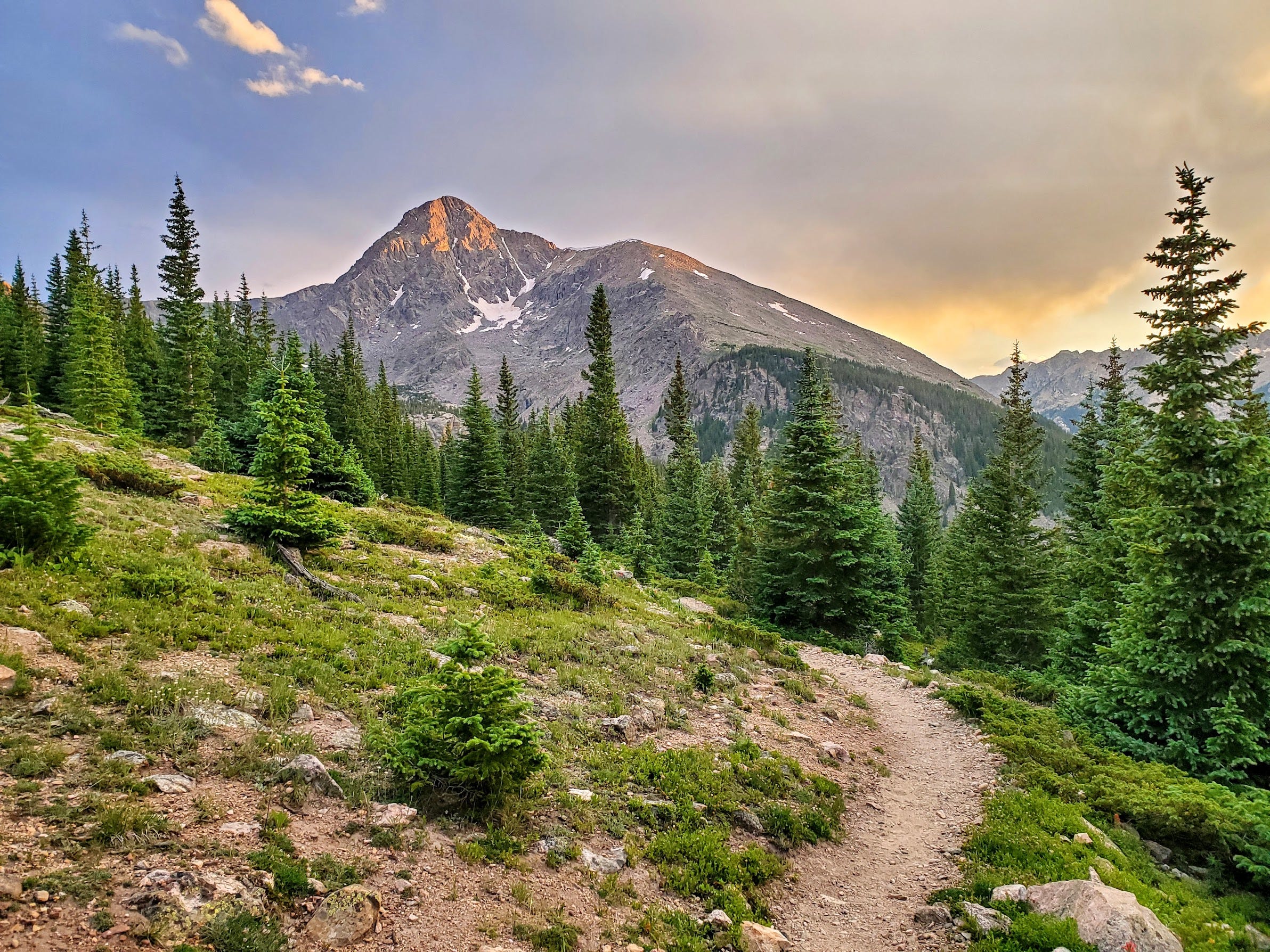
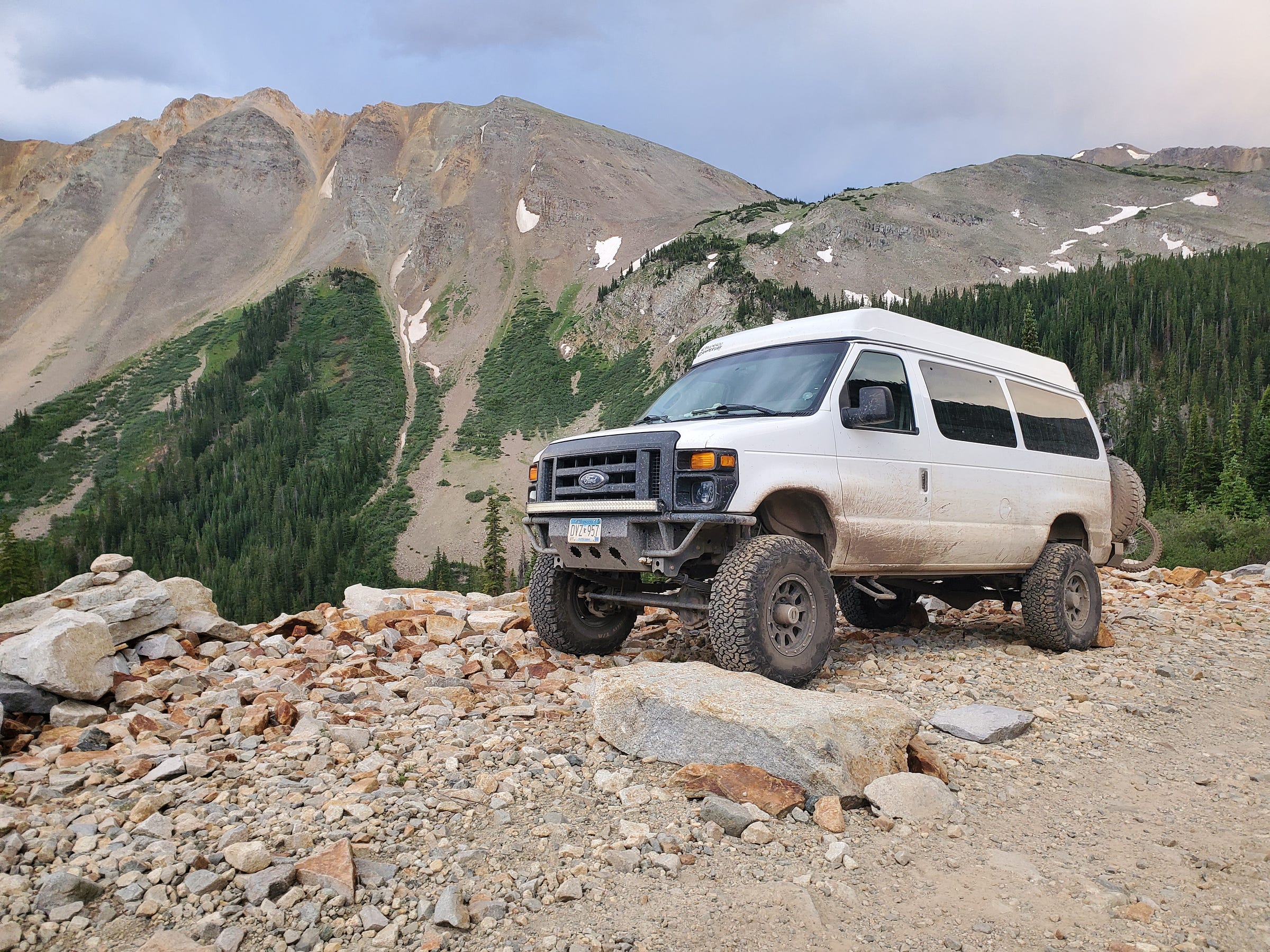
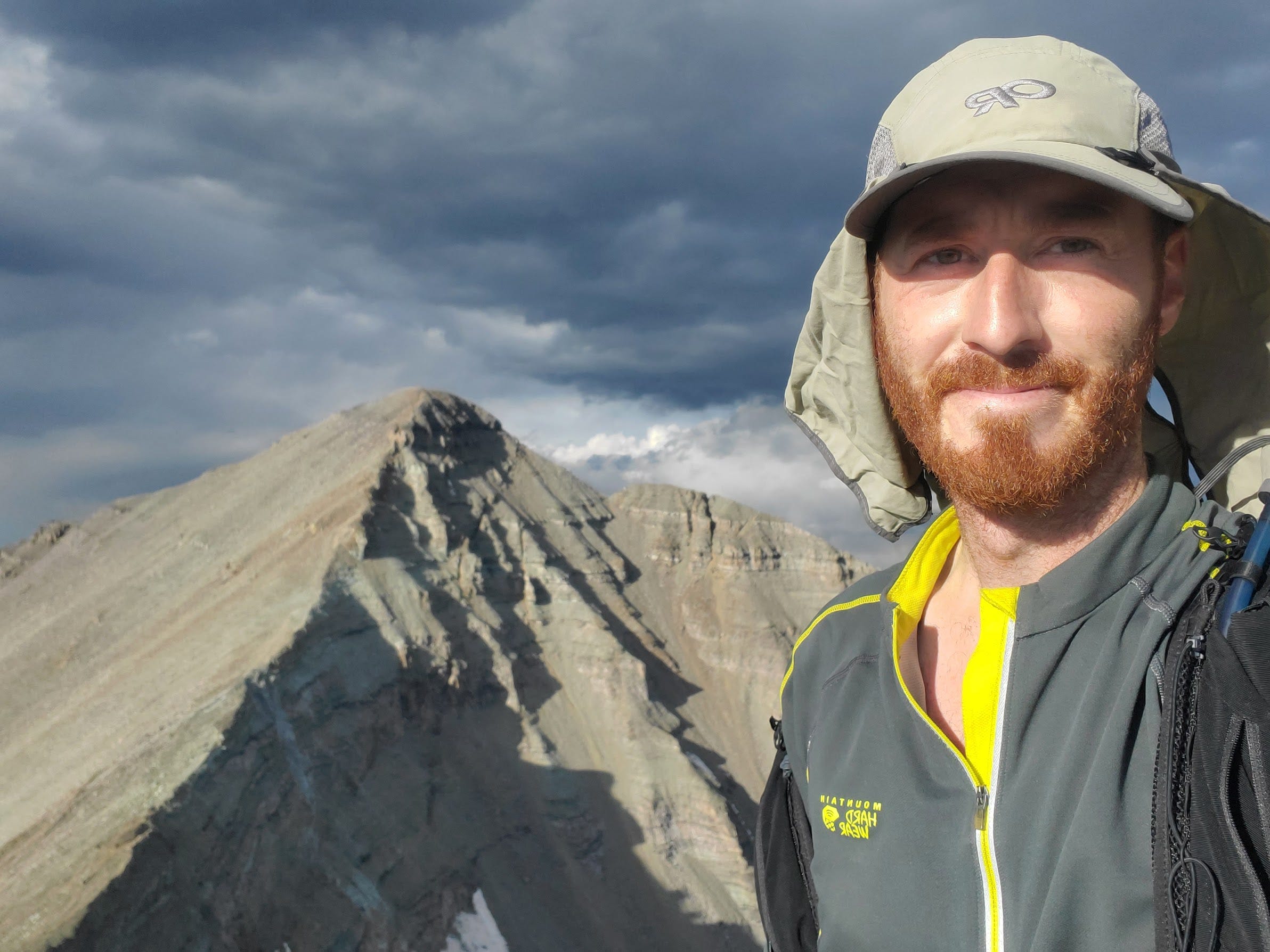
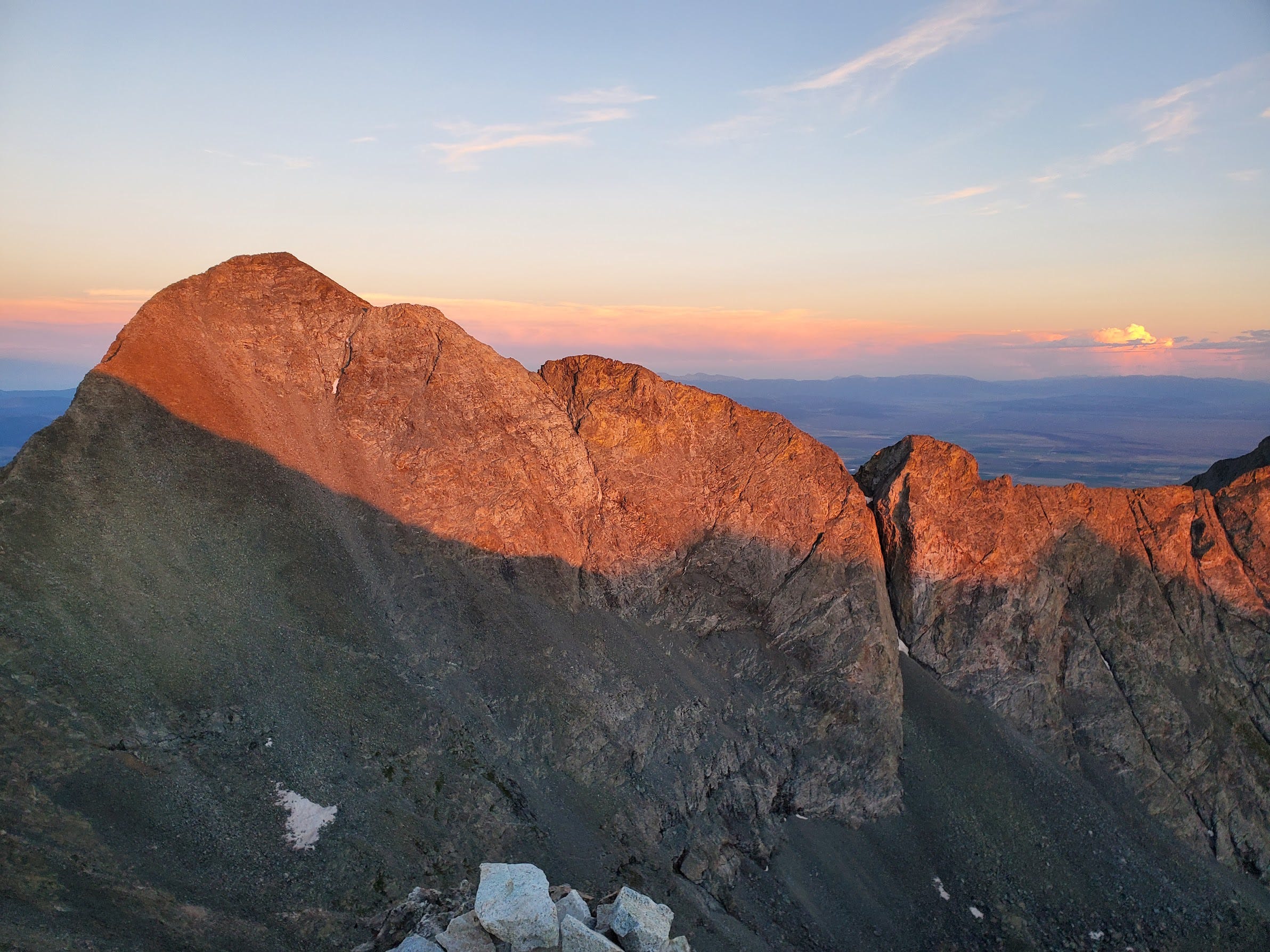
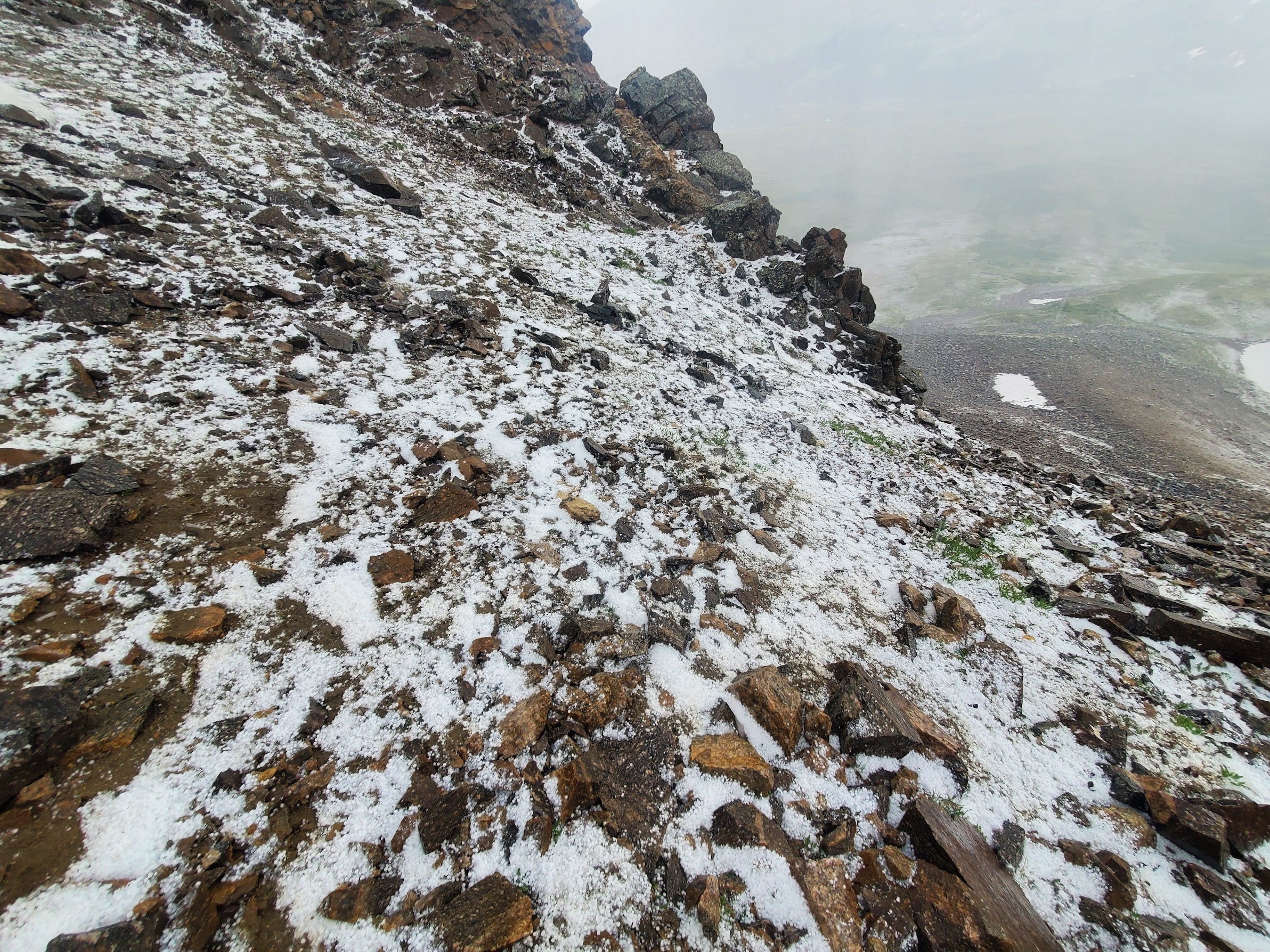

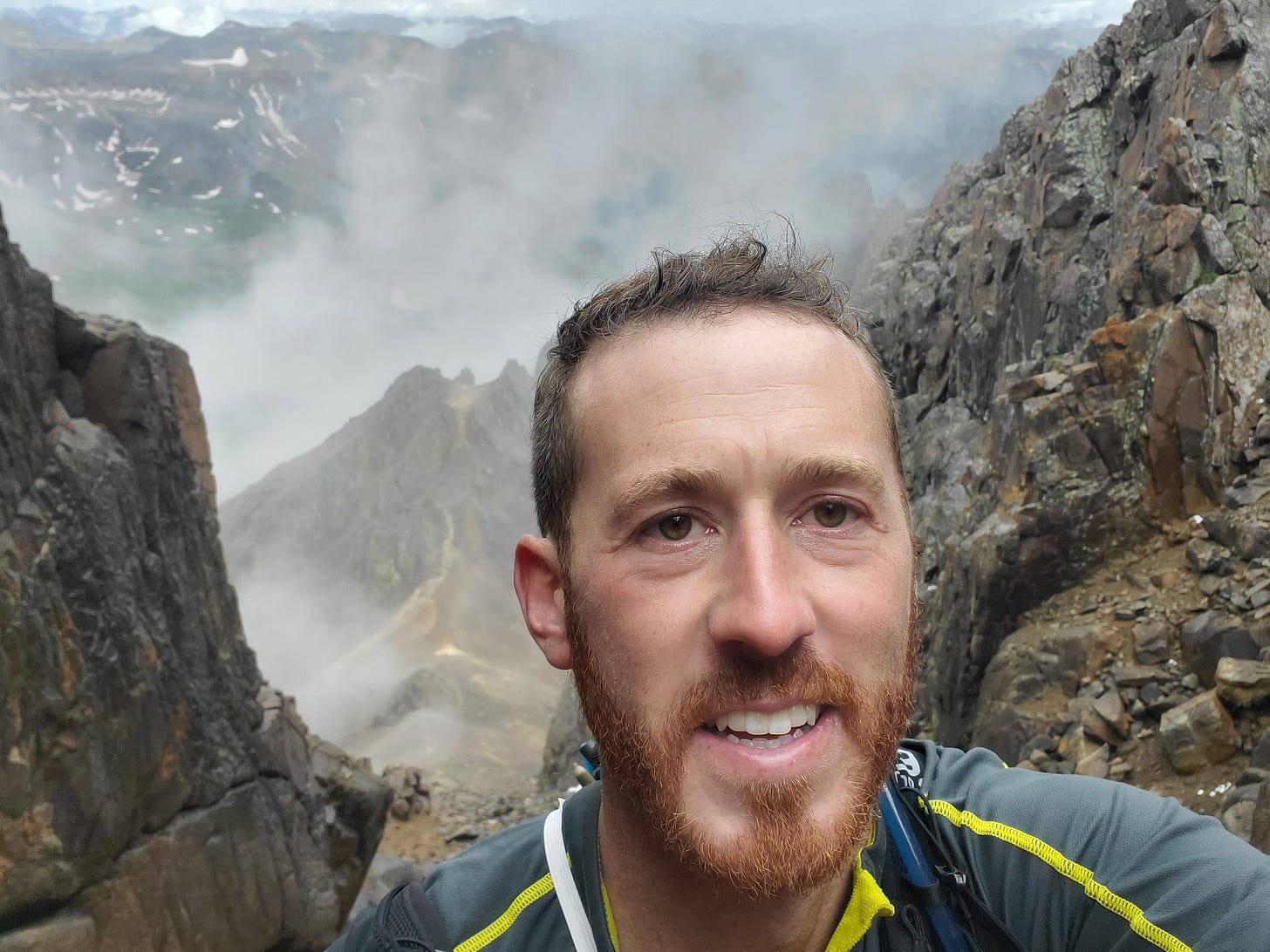



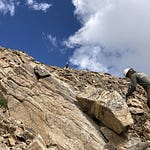
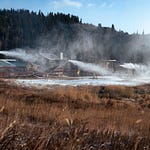
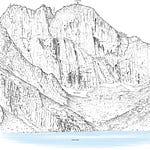


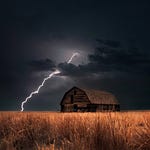
Podcast #18: Hiking Every 14er in 14 Days with Dan Hobbs